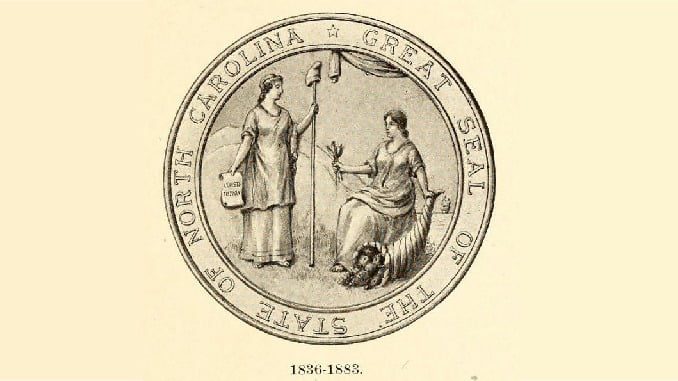
On Thursday, Gov. Roy Cooper announced he is extending his stay at home order until May 8. The toll of both the governor’s orders and local government proclamations cannot be overstated. More than 700,000 people have applied to unemployment insurance benefits in North Carolina. Those working from home are struggling with logistical difficulties of telecommuting and social distancing, often while balancing educational needs of their children. Virtually all of us are feeling the pain of social isolation.
As North Carolinians suffer the psychological and economic consequences of COVID-19 and shut down orders, people are beginning to stand up for their constitutional rights. Not least among these should be the very first section of the North Carolina Constitution:
We hold it to be self-evident that all persons are created equal; that they are endowed by their Creator with certain inalienable rights; that among these are life, liberty, the enjoyment of the fruits of their own labor, and the pursuit of happiness.
This section closely follows the wording of the Declaration of Independence, but it goes further by affirming the people’s right to “the enjoyment of the fruits of their own labor.”
The North Carolina Supreme Court described this as the right to live and work where one chooses. The Court wrote in 1960 words we would be wise to recall today, “This precept emphasizes the dignity, integrity and liberty of the individual, the primary concern of our democracy. It is the antithesis of the totalitarian concept of government.”
Of course, as with any constitutional right, the right to earn a living isn’t absolute. So how do we determine the degree of permissible infringement?
Consider a somewhat salacious case from the North Carolina Court of Appeals. In Treants Enterprises, Inc. v. Onslow County, the Court of Appeals considered a challenge to an Onslow County ordinance regulating businesses which provided companionship services. The plaintiff operated “Movie Mates,” which offered male or female companions to view videos in private rooms for a fee. The challenged ordinance imposed strict licensure and record keeping requirements intended to deter prostitution.
While discouraging prostitution is a good idea, that wasn’t enough to save the ordinance. The Court of Appeals explained government “cannot under the guise of protecting the public arbitrarily interfere with private businesses or prohibit lawful occupations or impose unreasonable and unnecessary restrictions on them.” Although recognizing that preventing prostitution is a valid local government interest, the Court nevertheless invalidated the ordinance because it went “far beyond what is necessary to accomplish that objective.”
Treants relied on the overbreadth of the ordinance at issue, which interfered with not only the plaintiff’s business but unquestionably legitimate businesses like companions for the elderly or sick. Still, Treants is significant for at least two reason. First, Treants recognized that Article I, sec. 1 “creates a right to conduct a lawful business or to earn a livelihood that is ‘fundamental’ for purposes of state constitutional analysis.” Second, Treants reinforces the long-standing principle that, no matter how valid a government objective is, limitations on fundamental rights cannot “go beyond what is necessary to accomplish that objective.”
Today we see executive orders and county proclamations closing or severely restricting various businesses. These undoubtedly infringe on North Carolinians’ right to earn a livelihood. Some of these restrictions would probably pass muster in a constitutional challenge. Some might not. No right, not even the inalienable right to enjoy the fruits of one’s labor, is absolute. But our rights aren’t written in disappearing ink, vanishing at the issuance of a government order.
If we as a state don’t start discussing and debating the constitutional limitations on government’s power, we will never know how far is too far. If we do not remember the Constitution’s emphasis on “the dignity, integrity and liberty of the individual” as “the antithesis of the totalitarian concept of government,” we risk liberty itself.



